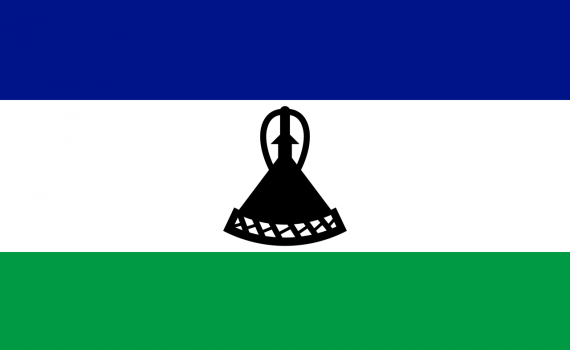
In 2006, EIFL organized the first regional open access awareness raising workshop for librarians from Southern African countries. The National University of Lesotho (NUL) librarian was among delegates to the event in Pretoria, South Africa. The following year, the NUL asked EIFL to organize a national workshop on institutional open repositories. This workshop led to the establishment of the National University of Lesotho Institutional Repository (NULIR) in 2007.
The adoption of the UNESCO Recommendation on Open Science - the first-ever international standard for open science - in November 2021 stimulated renewed interest in open science in Lesotho, and the NUL Library saw an opportunity to advance open access and open science at the national and institutional levels.
In 2021, with EIFL’s support, NUL Library to set up a Scholarly Communication Librarian’s office to support researchers and students, and during Open Access Week, NUL launched an open access journals platform, using Open Journal Systems (OJS) to host journals published by faculties at NUL.
In 2022 EIFL supported a NUL project that aimed to improve visibility of and access to research conducted in Lesotho. To main objectives of the project were to build open access and open science capacity and skills of university leadership, researchers and librarians; to modernize and upgrade NULIR, and to set in motion processes for development of a national open science policy for Lesotho and an institutional open science policy for NUL.
Timeline
2006 - ongoing
Activities
- Open access and open science awareness-raising event for librarians in Lesotho and capacity building event for NUL librarians, university leadership and researchers;
- Introductory workshop on Research Data Management (RDM) for NUL leadership and librarians;
- Initiating processes for development of a national open science policy;
- Developing and drafting an institutional open science policy for NUL;
- Improving the NUL institutional repository;
- Benchmarking of NUL with the University of Pretoria in South Africa on Scholarly Communication Librarianship;
- Workshop for publishers of NUL Journals Online on OJS and open access publishing.
Achievements
Strengthened open access and open science skills of librarians, researchers and university leadership
- Librarians from institutions across the country have improved understanding of their role in supporting open access and open science practices; the importance of institutional repositories, and open access publishing using OJS.
- Researchers from NUL are more aware about publishing articles in open access and recognizing predatory journals.
- NUL university leadership and librarians have improved understanding of RDM theory and practice; policies for RDM; infrastructures for managing data, and standards for improving data.
Advanced institutional and national open science policy development
- At the time of writing (June 2023), the NUL’s institutional open science policy had been drafted, and was going through different approval stages.
- The LELICO EIFL Open Access Coordinator had initiated processes for developing a national open science policy with an action plan aligned with the UNESCO Recommendation on Open Science.
- In November 2022, the Government launched a national Research and Innovation Policy (R&I). Open access, open data and open science are important elements in the new policy.
Increased visibility of NUL Research
- Improved the NUL institutional repository. NULIR has been migrated to a Cloud-based platform with enhanced security and increased storage, replacing NUL’s overburdened servers.
- Built open access publishing knowledge and skills, and OJS technical skills of NUL journal publishers.





